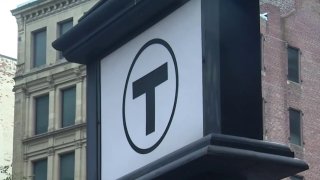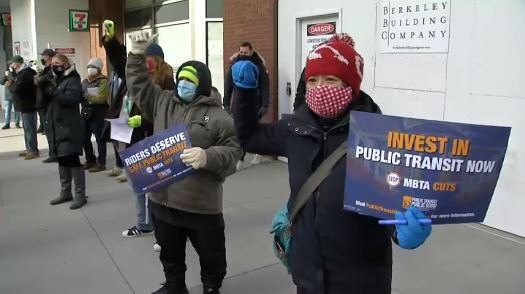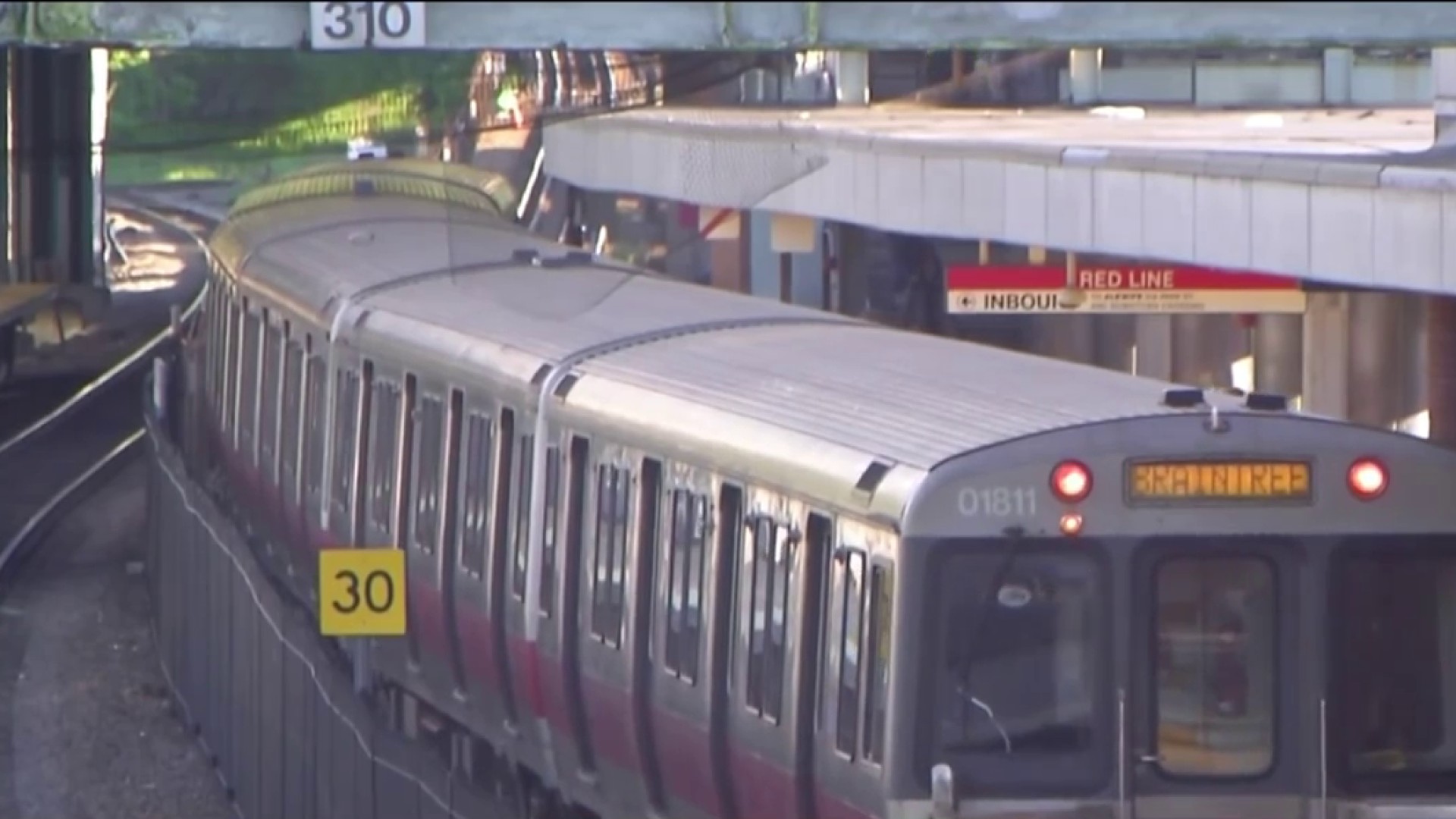
The MBTA overestimated its budget deficit and could erase its argument for a controversial package of service cuts by using a less conservative outlook, according to an independent oversight panel representing cities and towns that help fund the transit system and are served by it.
Less than two weeks before T officials vote on whether to slash portions of bus, train and ferry service to cope with a pandemic-fueled budget deficit, the MBTA Advisory Board concluded Thursday that the agency's plan poses unwarranted long-lasting risks.
"The long-term impact of service cuts is dramatic for riders and communities alike," the board wrote in a report. "The short-term budget benefit of making them must be weighed carefully, and the assumptions underpinning them deserve thorough investigation. The advisory board's view is that risk of permanent loss of ridership, increased congestion, and other negative effects of service cuts to people and communities is too high a price to pay right now, just as a vaccine is on the horizon."
Get top local stories in Boston delivered to you every morning. Sign up for NBC Boston's News Headlines newsletter.
Massachusetts is due to get 300,000 doses of Pfizer vaccine by the end of December, Gov. Charlie Baker said Thursday, but it will take months for vaccines to reach the general population at large and the work-from-home trend sparked by the pandemic is expected to have lasting effects, which will affect MBTA ridership.
Many parts of the T's proposal, such as pausing capital projects and reallocating federal funds, are viable and important, the board said in its report. But the advisory board found the T's math to be unnecessarily cautious.
After doing its own analysis, the advisory board estimated the MBTA's fiscal year 2022 deficit plus additional risks totals $528 million, roughly 20% smaller than the total worst-case scenario gap of $652 million that MBTA budget-writers estimate.
That $528 million gap, according to the advisory board, leaves "no budgetary justification to cut so much public transportation service at this time."
Brian Kane, executive director of the advisory board, said in an interview that the difference in estimates could effectively cover all of the money the agency hoped to save next fiscal year by slashing weekend commuter rail service, eliminating 25 bus routes and some ferries, reducing subway frequencies and more.
"To us, that negates the need to do service cuts," Kane said. "We think they still should do the other pieces they're talking about, the capital reallocations, and those are painful. That means stations in Lynn and Winchester and South Attleboro will not be done when they're supposed to be, but we think that's better than cutting off thousands of people that rely on these services."
MBTA officials and the Baker administration have argued that cuts are necessary to help close a budget gap of $584 million to $652 million in fiscal year 2022 and responsible given that ridership has dropped to only about a quarter of pre-pandemic levels.
Leaders at the transit agency say the cuts will not be permanent and that they will restore some portions once they have a stable funding source or if ridership returns in high volumes, but the timeline on those steps could stretch several years long.
The advisory board conceded that it would be unwise to run a full slate of vehicles on pre-COVID schedules in the current environment, but its members -- who represent 176 cities and towns that direct tax dollars toward the T -- said the agency is acting too drastically.
Kane said the T should not "use a global pandemic to do a service plan."
"The T has existing management rights to do things like run less frequent service and run shorter train sets. They're already doing that. They've truncated some bus lines and consolidated others," Kane said. "Cut back, don't cut off. If you have to run a smaller boat to Hull, go ahead. Don't stop running boats to Hull. That's the difference."
Kane said the advisory board believes the T used excessively conservative estimates, did not factor in federal rebates the agency often receives and planned for greater expenses on COVID-era cleaning than might be necessary.
Under its current plan, Kane said, the T will build its budget not only to close the budget gap but to surpass it and end the FY21-22 two-year period with a net surplus of $73 million.
"My folks just don't feel like the T should be generating a surplus by eliminating public transportation," Kane said. "It's just not right."
More Coverage on Proposed MBTA Cuts
In response, T officials cautioned that the agency faces limits to federal reimbursement despite the advisory board's suggestions. Even using the outside panel's estimates, the T would face a budget gap of around half a billion dollars.
"The scenario planning utilized by MassDOT and the MBTA for the Forging Ahead Initiative includes multiple scenarios with COVID-19 abatement beginning in the second quarter of FY21 and no scenario predicts ridership returning to pre-COVID levels by 2022," MBTA General Manager Steve Poftak said in a statement. "The MBTA is planning for future service adjustments now as they require months of lead time to finalize and implement, and saving resources now while ridership has decreased by 75% will help the MBTA bring back service when it is needed after the pandemic has faded."
Advisory board members called for the MBTA to create a "Return to Service Commission" including riders, employers, business leaders and municipalities to help guide the process of planning the agency's operations amid COVID-era ridership fluctuations.
Poftak said the T "has no plans for a Return to Service Commission," pointing instead to existing avenues for public feedback.
Despite widespread public opposition and many critical comments from lawmakers, legislative leaders have not intervened to alter the T's plans beyond language in budget bills under consideration pushing the agency to restore cut service with any additional federal funding it might receive.
The House continues to back a package of transportation-related tax and fee increases it passed in March aimed at generating more funding for the MBTA and other agencies, while the Senate has shown little to no interest in approving the hikes during the pandemic and related recession.
Kane argued that the T's current fiscal crisis points a spotlight at its underlying structural problems. Lawmakers might be hesitant to act again, he said, but the debt the T carries and its flawed funding structure create problems that cannot be addressed with increased operating funds.
"Just tacking more money onto the operating budget every year is not a solution to the fundamental, underlying illness the MBTA has in its financing structure, which I would argue is on the capital side," Kane said. "The T is the only large transit system in America without a dedicated revenue source for its capital budget, so everything they get is borrowed money."
"Until that is fixed, we're going to keep finding ourselves here," he said.



